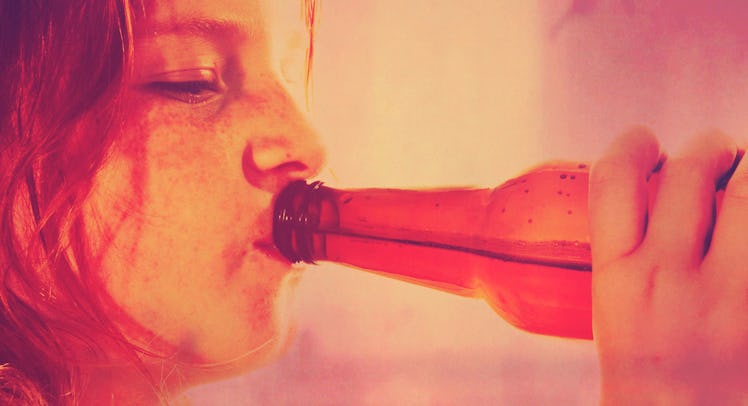Stop Pretending It’s Good Parenting To Give Your Kids A Sip Of Your Beer
"There is no study which supports the view that parents giving alcohol to their kids reduces, moderates, or positively influences their drinking habits — quite the reverse."

Allowing your kids to drink alcohol at the dinner table won’t make them any less likely to become alcoholics as adults, according to a new study. The findings challenge a mainstay of conventional parenting wisdom. If you shelter your kids they’ll become alcoholic, drug-abusing, sex maniacs when they’re finally free of your rules (so goes the theory) and the trick is to expose your children to measured vices while they’re still in your home. Call it the Everything In Moderation approach, or Better They Try It With Me parenting. Besides, no harm in just letting them sip your beer … right?
Wrong. “There is no study which supports the view that parents giving alcohol to their kids reduces, moderates, or positively influences their drinking habits — quite the reverse,” co-author on the study Richard Mattick, of the University of New South Wales told Fatherly. “There’s nothing in the literature that suggests these parents who think they’re doing the right thing are achieving a positive outcome.”
We asked Mattick to describe his work debunking the “Better They Try It With Me” parenting myth. Here’s his advice on how to safely introduce your kids to alcohol, and when to keep your beer to yourself.
Some parents give their kids alcohol, under the assumption that it decreases the Risk of them abusing alcohol in the real world. Does it work?
There is no study which supports the view that parents giving alcohol to their kids reduces, moderates, or positively influences their drinking habits — quite the reverse. There’s nothing in the literature that suggests these parents who think they’re doing the right thing are achieving a positive outcome. Providing alcohol doesn’t achieve anything. So why would you do it?
Parents think, well, if I don’t give alcohol to Johnny or Felicity now, they will become unleashed when they reach the legal purchase age. There’s no evidence kids start behaving differently than they would have otherwise. Anecdote is a terribly powerful thing, but often incorrect.
Did parents always have this misconception?
This is kind of a recent generational change. When I was growing up in the ’60s, I remember my father allowed me to have a taste of beer when I was four years old and sitting on his knee. It was horribly acrid and unpleasant. But otherwise, alcohol was not provided to underage people. Parents did not give alcohol to kids. It’s this curious thing that’s occurred and the reasons for it are quite unclear. Parents have somehow come to believe that this is their role.
But it sounds sort of logical. Why doesn’t it work?
Other researchers have argued that it’s the permissiveness. If you give alcohol to kids explicitly, and give them permission to drink at home, this gives a permissiveness to drinking. When you’re allowed to do something, you do it. If you look at the broad literature within the USA and Australia, you’ll see that harms mainly accrue after the legal age of purchase, because when you are permitted to purchase alcohol by the government, you are more likely to come to harm.
Are parents actually giving a lot of alcohol to their kids?
We were asked by our federal government to comment on what we called “secondary supply of alcohol”, or “where do kids get alcohol from”. It was mostly thought to be other kids. But we found in America, the UK, and other high-income countries that parents are a major supplier.
How bad is it for me to give my kids a sip of beer?
The harms are not frequent. It’s not that every kid who is given alcohol is turning into a raging alcoholic or having sex they wouldn’t otherwise have. By and large, it’s probably a benign thing. But if you look at the population level there’s no evidence of benefit, and evidence of a negative effect. Many kids won’t come to harm, but the idea that they achieve benefits really needs to be questioned. Although I should make the point that the research needs to be replicated.
Any strategies for safely exposing my children to alcohol?
Parents should just come clean with kids and say, look, alcohol has a range of risks associated with it, from simple trauma like falling over on the sidewalk or embarrassing yourself to serious trauma like traffic accidents and sexual activity. That dialogue where parents are quite clear that there are risks, particularly when drinking high volumes of alcohol, is straightforward and honest. We can explain that we don’t want them to drink heavily at all, but we realize they will, and that it’s not a punitive thing. Kids tend to discount advice, but I think that’s where it begins and ends.
This article was originally published on